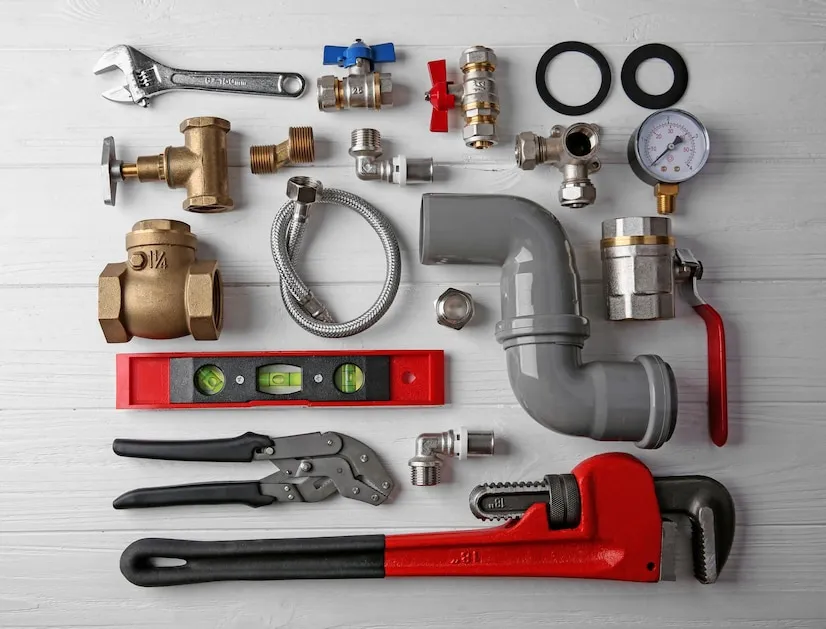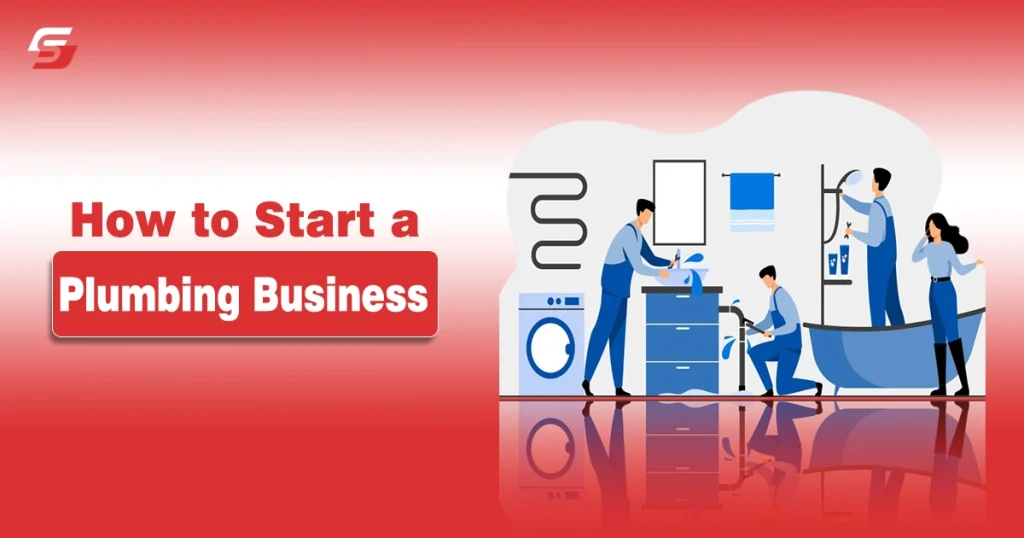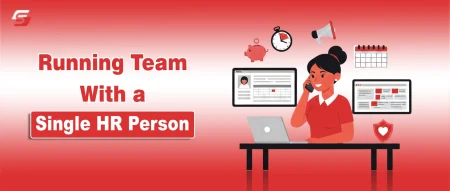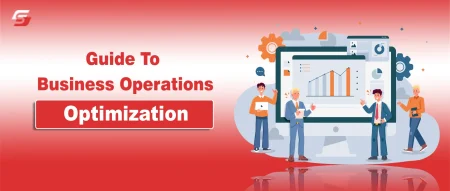Are you a skilled professional looking to turn your trade into a profitable enterprise? Starting a plumbing business is a way to become your own boss. With consistent demand for plumbing services in both residential and commercial sectors, it is the perfect time to start your own business.
However, you don’t just need plumbing experience and technical know-how to be successful in this field. It needs strategic planning, proper licensing, sound financial management, and a strong commitment to customer service.
In this guide, learn how to start a plumbing business, from planning to creating a business website. Let’s have a look.
A plumbing business is a company that offers professional plumbing services to residential, commercial, or industrial clients.
These services typically include:
- Installing and repairing water pipes, drainage systems, faucets, toilets, and water heaters
- Maintaining plumbing systems in homes or commercial buildings
- Emergency services like fixing burst pipes or blocked drains
- Consulting for new construction or renovation projects
Plumbers are trained professionals who install and maintain these systems in homes, businesses, and industrial sites.

If you’re good with your hands and enjoy problem-solving, starting a plumbing business could be one of the smartest moves.
The plumbing industry is booming thanks to aging infrastructure and increasing demand for eco-friendly systems. According to IBISWorld, the U.S. plumbing industry revenue has grown to $169.8 billion in 2025.
The plumbing business is growing day by day due to its importance. There are three types of plumbing businesses:
- Solo Plumber (Freelancer): One person operation, often works locally
- Small Plumbing Company: A few plumbers working together under one brand
- Commercial Plumbing Contractors: Handle large projects like malls, hospitals, or apartment complexes
Many plumbing businesses start small and grow over time with good service and strong client relationships.
To start your career as a plumber, you need a mix of training, certification, and practical experience. Most people begin with a plumbing apprenticeship or by taking a college course in plumbing. These give you the foundation you need in both theory and hands-on skills.
Common qualification paths include:
- Level 2 or 3 Diplomas in Plumbing and Domestic Heating
- T Levels in Building Services Engineering
- Plumbing Apprenticeships, which combine paid work with classroom learning
- Fast-Track Plumbing Courses, like the City & Guilds Level 2 Diploma
- Plumbing work experience, often as a Plumber’s Mate
Many employers now expect health and safety training certificates in areas like ladder safety, asbestos awareness, and confined spaces.
Plumbing isn’t just about fixing leaks; it requires a balance of technical skills and strong personal qualities.
Hard Skills (Technical)
- Installing and repairing water systems, toilets, and heaters
- Reading blueprints and understanding building codes
- Using plumbing tools like cutters, pipe benders, and inspection cameras
- Understanding safety rules and environmental regulations
Soft Skills (Personal)
- Good communication and customer service
- Problem-solving and attention to detail
- Physical strength, stamina, and coordination
- The ability to work independently or with a team
- Basic math and computer literacy
A plumber who shows up on time, works cleanly, and communicates well will always stand out from the competition.
Before starting your own business, if you are curious to know plumbing wages, here is our guide to read about: How Much Does a Plumber Make (Hourly and Annually Wages)
If you are interested in this business, you should follow some essential steps to become an expert in this field. Let’s take ‘how to start a plumbing business in California’ into consideration and take you through the entire process:
1. Learn the Trade and Get Licensed
You can’t start a plumbing business without being a certified plumber or hiring one.
- Training Options: Attend a trade school, technical college, or become an apprentice. This usually takes 3–5 years.
- License Requirements: Most states require a license to work as a plumber or to run a plumbing company. You should check for the licensing requirements in California and apply for the business license.
- Specializations: Consider areas like gas lines, solar water systems, or green plumbing to stand out.
2. Choose a Business Structure
The structure you choose affects taxes, liability, and how you’ll grow.
- Sole Proprietorship: Easiest to start. Great if you’re working solo, but your personal assets are not protected.
- LLC (Limited Liability Company): Offers protection and flexibility. Most plumbing businesses go this route.
- S-Corporation: Useful if you plan to scale big and save on self-employment taxes.
3. Register Your Plumbing Business
Once you’ve decided on a name and structure, register your business legally.
- Check Name Availability on your state’s website.
- Get Employer Identification Number from the IRS. It’s free and used for taxes.
- Register with State and Local Authorities to receive your business license.
4. Create a Business Plan
This step isn’t just for banks or investors—it helps YOU stay on track.
- Define your services (e.g., residential plumbing, emergency repairs, renovations).
- Understand your target market.
- List your startup and monthly costs.
- Set revenue goals and marketing strategies.
5. Get Insurance and Permits
Plumbing involves physical risk, property damage, and legal liability—so coverage is crucial.
- General Liability Insurance: Covers accidents or property damage.
- Workers’ Compensation: Required if you hire employees.
- Bonding: Often needed for government or big commercial jobs.
- Vehicle Insurance: For your plumbing van or truck.
6. Buy Tools and Equipment
Here’s where your initial investment will go. When the question arises of how to start a plumbing business, you need reliable tools to do quality work.
Basic Tools Include:
- Pipe cutters
- WrenchesPlungers
- AugersDrain snakes
- inspection camerasSafety equipment (gloves, goggles, etc.)

7. Set Up Business Finances
Separate your personal and business money—this keeps things clean for taxes and budgeting.
- Open a business bank account in any bank of your choice and apply for a business credit card.
- Use software like QuickBooks, Wave, or FreshBooks for invoicing and expense tracking.
- Hire a bookkeeper or accountant if numbers aren’t your strength.
8. Build a Website and Online Presence
Today’s clients look online before picking a plumber, so your web presence matters. So, you are considering starting your business blog for your customers.
- Create a mobile-friendly website with info about your services, rates, and a contact form.
- Set up a Google Business Profile so you show up in local search.
- Register on local directories like Yelp, Nextdoor, and Angi.
- Collect and display customer reviews to build trust.
9. Market Your Plumbing Business
Let people know you’re open for business!
- Start with local SEO to appear in more results for “plumbing business near me” queries. Blog about plumbing tips, FAQs, or seasonal maintenance.
- Print plumbing business cards and flyers to distribute in neighborhoods or at hardware stores.
- Offer referral bonuses for happy customers who send new clients.
- Run Google Ads or Facebook Ads targeting your city or zip code.
10. Start Getting Clients
Now that you’re ready, it’s time to book jobs and deliver 5-star service.
- Respond quickly to calls and emails—speed wins clients.
- Arrive on time, work clean, and finish professionally.
- Ask for reviews and testimonials after each job.
- Stay consistent, and your business will grow through word of mouth.
Starting a plumbing business doesn’t mean going all-in blindly. Take one step at a time, do the research, and invest in your skills. You’ll thank yourself when you land your first loyal client and the business keeps flowing.
This article pairs well with our detailed guide on how to start a plumbing business — check it out for earning insights.
How much does it cost to start a plumbing business?
Typically between $10,000 and $50,000, depending on tools, transport, and licensing.
Do plumbers make good money?
Yes. In the U.S., plumbers earn an average of $30.39 an hour, with business owners making more depending on location and volume.
Is plumbing a good business in 2025?
Absolutely. With housing growth and green tech, demand is higher than ever.
Can I start without experience?
You need licensing, but can hire a licensed plumber and act as the business owner.
How to start a plumbing business with no money?
Start by offering services locally, using borrowed tools and free marketing on social media. Get licensed, build a solid reputation, and reinvest profits to grow slowly as a plumber.









